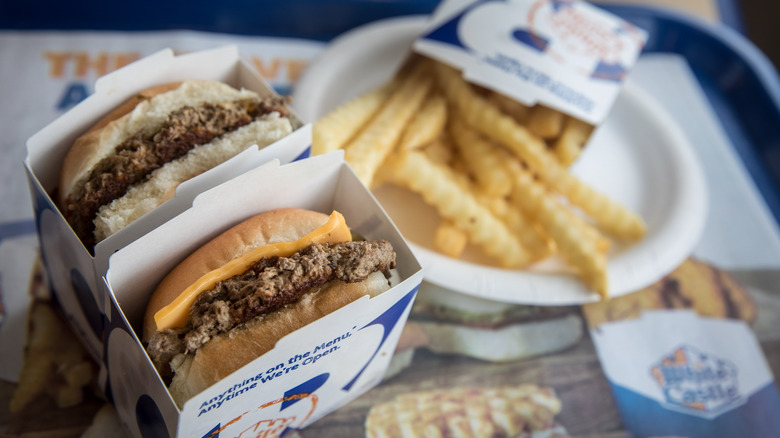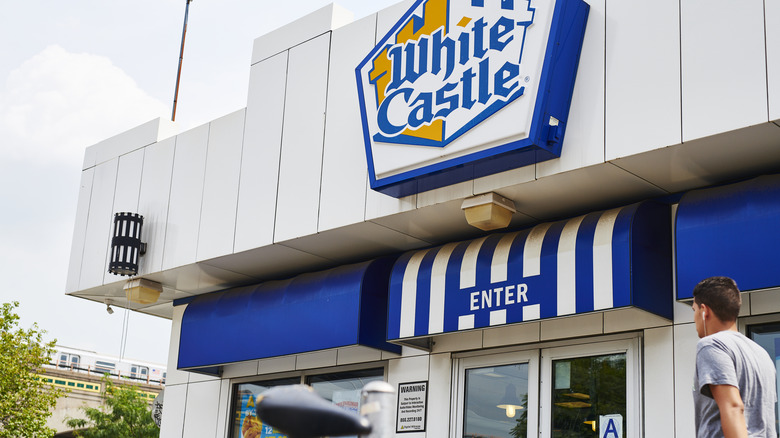How White Castle Paved The Way For Fast Food Burgers
Hamburgers are the quintessential American dish, and fast food burgers have become a benchmark of American cuisine over the past century. White Castle is the pioneering force that paved the way for these burgers both in and out of the kitchen. Originating in Wichita, Kansas, in 1921, White Castle was the brainchild of two brilliant minds; Walter Anderson provided the culinary ingenuity and Billy Ingram conceived the fast food burger chain model.
Anderson had been serving his small square-shaped burgers, the prototype of what we know now as "sliders," on proprietary mini-buns since 1916. Furthermore, he invented a burger cooking method that would reduce cook time, allowing burger chefs to mass-produce sliders in minutes. White Castle chefs not only cooked sliders at record speeds but also packaged them in tidy crave boxes, effectively engineering the concept of fast food as takeout meals to eat on the go. Efficiency extended from cooking to packaged delivery, with each White Castle employee executing a specific assembly line role.
White Castle opened its doors 15 years after the debut of Upton Sinclair's book "The Jungle," which depicted horrifying conditions in meatpacking plants, virus-infested meat, and other atrocities. In an attempt to restore America's faith in the meat industry after Sinclair's scathing report, White Castle prioritized cleanliness as well as productivity, with stainless steel commercial kitchens, employee uniform protocols, and hygiene guidelines upheld to this day.
White Castle's legacy
In 1933, Anderson sold his share of White Castle to Ingram, who continued to develop a fast-food business model that inspired the principles of the industry today. Each White Castle location looked the same, operated the same, and delivered the same product, achieving a standard of consistency that fast food is known for today.
Ingram's business model also extended to marketing. He created famous bits and publicity campaigns that launched hamburgers into the limelight of American cuisine. White Castle became a household name and pioneer of the fast food burger model, inspiring a proliferation of burger chains by the 1940s and 1950s, including industry giants like McDonald's and Burger King.
While both McDonald's and Burger King have become globally popular fast food burger giants, White Castle remains a regional U.S. chain, with nearly 400 locations in the Midwest and Northeast. And White Castle still stands out as a treasured time capsule, serving loyal customers sliders by the box out of the same miniature castles. It has even recently garnered national attention thanks to the cult classic comedy, "Harold and Kumar Go To White Castle".

